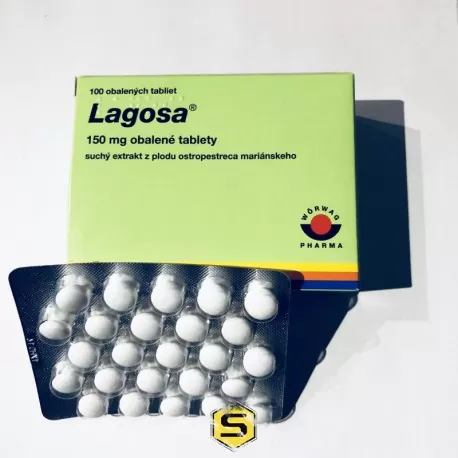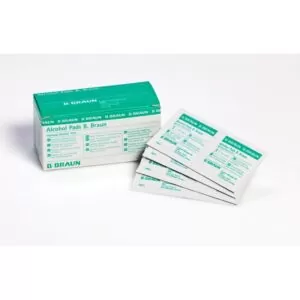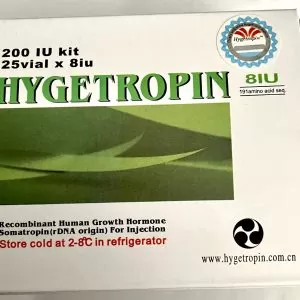Description
LAGOSA tablets
What is Milk Thistle?
Milk Thistle is an herbal supplement that detoxifies and protects vital liver functions and more. Milk thistle has been used for over 2,000 years as a natural treatment for liver disorders. The plant is known in scientific circles as the Silybum marianum (L.) Gaertner (syn. Cardous marianus), but it is more commonly known as “milk thistle,” “St. Mary Thistle,” “Holy Thistle” and “Lady’s Thistle.” It is an herbaceous annual or biennial plant belonging to the Asteraceae family that can grow to be ten feet tall with flowers that are red and purple in color. Milk thistle gets its name from the milky white fluid that comes from the plant’s leaves when they are crushed. It is native to southern Europe, southern Russia, Asia Minor, and North Africa, and has also been naturalized to North and South America. Europeans were among the first to use milk thistle seeds as an herbal treatment for liver disorders. However, the plant’s remedial capabilities have been known since ancient times. Milk Thistle was mentioned by Theophrastus in the 4th century B.C. by the name of “Pternix” and it was also referred to by Pliny the Elder in the 1st century A.D. by the name of “Sillybum.” Additionally, in 1744, Von Haller documented the specific use of the plant for liver disorders in its “Medizinischen Lexicon.” In more recent years, many authors such as Johann Gottfried Rademacher, Volker Schulz, and Henry Leclerc mention the benefits of Silybum Marianum (milk thistle) when used as a treatment of liver diseases as well as in the treatment of disorders of the bile duct and spleen.
What are the Benefits of Milk Thistle?
Over the past forty years, intensive chemical, pharmacological and clinical research has confirmed the mechanisms of action and therapeutic value of milk thistle in a wide range of human liver-related and non-liver-related conditions. Literally hundreds of modern research studies have confirmed the remarkable ability of milk thistle to protect the liver and the body against virtually all types of damage. Additionally, the United States National Library of Medicine and the National Institutes of Health (NIH) have cataloged more than 400 scientific studies of milk thistle and its active compounds in their medicine database. These studies reflect what generations past knew and depended on – that milk thistle is one of the most valuable and beneficial herbal remedies and treatments available anywhere in the world. Today, milk thistle is still one of the most commonly used medicinal plants in the world and is also the number one recommended natural herb for liver health. In fact, in Europe, milk thistle is a prescribed medication. The milk thistle extract is prescribed to treat mushroom poisoning, alcoholic cirrhosis, chronic hepatitis, drug and alcohol-induced liver damage and acute viral hepatitis, just to name a few. Milk thistle extract is used to maintain liver health and to protect the liver from the effects of toxins such as alcohol, a polluted environment or workplace, and a host of liver related diseases. Liver related conditions indicating the use of milk thistle are varied, including, but not limited to:
- Alcoholic cirrhosis
- Chronic active hepatitis
- Drug and alcohol induced liver damage
- Acute viral hepatitis
- Fatty liver, nonalcoholic fatty liver disease (NAFLD), and nonalcoholic steatohepatitis (NASH)
- Fibrosis and Cirrhosis
- Hepatic toxicity caused by steroid usage
- Environmental sensitivities and toxins
- A medical condition that necessitates the use of hepatotoxic medications
- Regular moderate-to-heavy alcohol use
Additionally, experimental and clinical studies suggest that milk thistle extracts also have the following non-liver related benefits:
- Lowers cholesterol levels, which benefits the heart
- Reduces the growth of cancer cells in breast, lung, colon, prostate, cervical and renal cancers
- Functions as a therapeutic agent for the prevention of Alzheimer’s disease
- Improves blood sugar levels
- Contains numerous anti-aging properties
- Reduces cell damage caused by radiation and chemotherapy treatments
- Supplements sunscreen protection and may be useful against multiple types of skin disease
- Works as a free radical scavenger and powerful antioxidant
- Reduces hot flashes and other related menopausal symptoms
- Helps with intestinal / indigestion issues
- Reduces the effects of deathcap mushroom (Amanita phalloides) poisoning
How Does Milk Thistle Work?
Milk thistle seeds contain a bioflavonoid complex known as silymarin. Silymarin, which is the active ingredient in milk thistle, is simply the purified extract of the fruits (seeds) of the milk thistle plant. It is responsible for the main medical benefits of the milk thistle plant, and it is made up of three main flavonoids:
- silybin – also know as silibinin
- silydianin – also known as silidianin
- silychristin – also know as silicristin
Silybin makes up 50% – 70% of silymarin and has been shown in clinical studies to be the most biologically active and beneficial constituent of the milk thistle extract, silymarin. Double blind studies on the effect of milk thistle on toxic liver damage (mostly alcohol-related), chronic liver disease and disease caused by certain drugs have been reviewed by medical experts. The experts all concluded that milk thistle is an extremely therapeutically useful medicinal plant product that stabilizes the cell membrane and stimulates protein synthesis while accelerating the process of regeneration in damaged liver tissue. These effects are important in the therapeutic efficacy of milk thistle. According to other studies, milk thistle may protect the cells of the liver by blocking the entrance of harmful toxins and helping remove these toxins from liver cells. As with other flavonoids, milk thistle is a powerful antioxidant which works to maintain health and energy by protecting the body from damage caused by free radicals and lipid peroxidation, which can injure healthy cells and tissues. Just as grapes and red wine, for example, are touted as excellent sources of antioxidants, milk thistle also contains the properties needed to offer the body the same antioxidant benefits.
What are the Side Effects of Milk Thistle?
One of the best things about milk thistle is its gentle nature. Compared to many other supplements and herbal remedies that bring with them side effects such as headaches, virtually all parts of the milk thistle plant have been used with no reports of toxicity. Adverse effects in clinical and lab studies related specifically to the seed extract (silymarin) are also virtually nonexistent, although it may have a mild and short-lived laxative effect for some people. Milk thistle can be used safely and effectively by a wide range of people, including pregnant and nursing women.
What is Standardized Milk Thistle?
Milk thistle as an herb is made up of both active and inactive ingredients in varying amounts, with the active ingredients providing all of the supplement’s benefits and therapeutic value. When purchasing a non-standardized milk thistle product, you have no way of knowing what proportion of active to inactive ingredients will be present in the final product. Thus, to ensure consistency throughout the herbal supplement market, milk thistle is available in a standardized form. When purchasing a standardized milk thistle product, you are supposed to receive the same proportion of the active and beneficial ingredients to inactive ingredients each and every time. Today, most standardized milk thistle products sold in the United States are standardized to reflect 80% silymarin. This means that silymarin, the active ingredient, makes up 80% of the total weight of the product, and the inactive ingredients make up the remaining 20%. So if you purchase a standardized milk thistle product that is 250 milligrams of 80% standardized silymarin, you would actually have only 200 milligrams of the active, beneficial ingredient. It is important to understand this so that you know what you are comparing when you are looking at different milk thistle products to determine those that offer the best value and those that offer the best concentration of the active ingredient.








Reviews
There are no reviews yet.